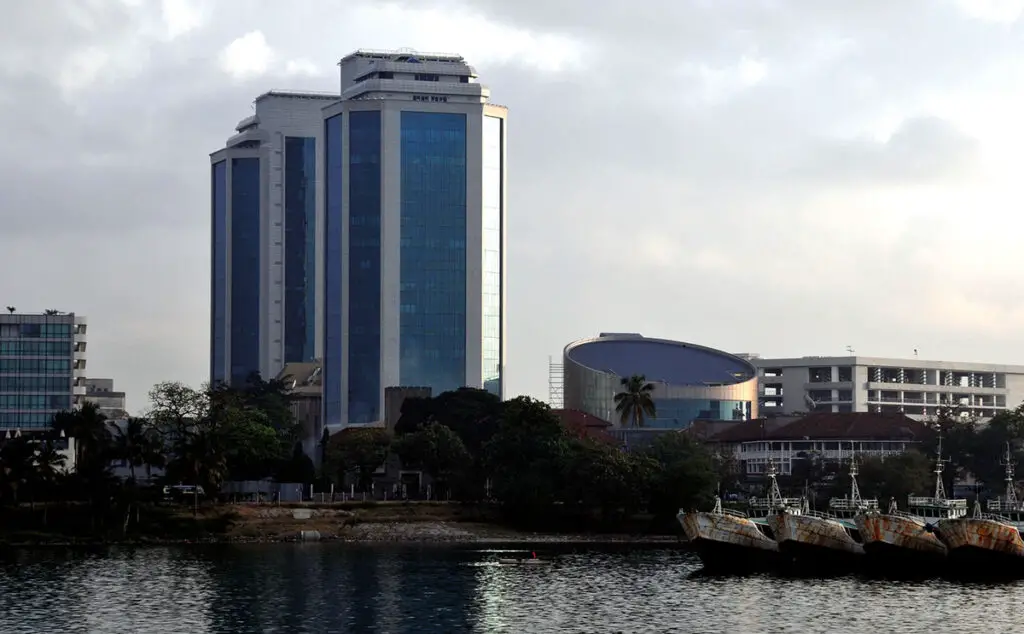- The increased credit to the private sector is associated with positive growth-focused policies.
- The data shows that there was robust private credit growth except for the tourism industry which is still coming out of the post-pandemic period.
- Overall lending rates dropped slightly from 16.8 percent in August 2021 to 16.1 percent in August last year.
Tanzania is pushing for private sector growth evident in increased credit to the private sector, according to the World Bank.
In the most recent World Bank report on Tanzania’s Economic Update, the growth rate of credit to the private sector increased from 3.2 percent in August 2021 to 20.7 percent in August 2022 and is expected to grow further this year.
The increased credit to the private sector is associated with positive growth-focused policies designed to support private sector recovery in a post-pandemic and slowing global global growth environment.
The development comes as the country grapples with worsening criticism over its decision to go through with approval for the construction of the much-debated East African Crude Oil pipeline (Eacop).
The Eacop will transport crude oil from fields in neighbouring Uganda in the Lake Albert basin to Tanzania’s port city of Dar es Salaam. Critics say the pipeline will damage the environment and destroy marine life in the event of a spillage.
The tender for the construction of the pipeline had been given to France’s TotalEnergies and the China National Offshore Oil Corporation.
Meanwhile, according to the World Bank, Tanzania is looking forward to a productive year of economic growth. The World Bank report shows that almost all sectors of Tanzania’s economy received increased credit over the first eight months of the financial year 2022/23.
The data shows that there was robust private credit growth except for the tourism industry which is still coming out of the post-pandemic period.
On the flip side, “…rising interest rates encouraged a 19.3 percent increase in deposits during the period, which boosted credit growth,” reads the World Bank report.
Similarly, lending rates dropped but not far enough to encourage the sought-after increase in borrowing. The World Bank points out that Tanzania’s banking sector brandished a conservative risk approach.
It is not surprising given the sustained inflation but nonetheless, overall lending rates dropped slightly from 16.8 percent in August 2021 to 16.1 percent in August last year.
Also Read: Addressing cross-border insurance in Africa
Unfortunately, it was not enough. The drop did not do much to incentivize micro, small, and medium-sized Enterprises (MSMEs) to borrow.
“Savings and time deposit rates rose from 1.6 to 2.1 percent and 6.6 to 7.5 percent, respectively between July 2021 and July last year contributing to a 19 percent increase in banks’ domestic deposits,” reports the World Bank.
Despite this fact, the World Bank has issued a positive report for Tanzania’s economy underlining that all “financial stability indicators for the year ending July 2021 suggest that the banking sector is sound, adequately capitalized and profitable.”
Thanks to the Tanzania Central Bank the Bank of Tanzania (BoT) commercial banks exercised stringent risk management strategies and were able to even lower the Non-Performing Loans (NPLs) ratio.
The BoT is also working to develop Tanzania’s financial sector by pushing for the development of capital markets. In this regard, the BoT is looking to diversify the range of available financial products.
However, the BoT would do well to also invest in conducting awareness campaigns to alert the public, particularly SMEs as to the availability of these financial products if it is to diversify its clientele and expand financial inclusion to the working class.
Also Read: Ugandan Government to borrow €108m for oil roads
Building resilience
The World Bank’s 18th Economic Update credits the government for what it describes as ‘strong macro fundamentals that have allowed Tanzania to emerge from the COVID-19 pandemic in good shape.’
However, Tanzania’s economic recovery has been ‘relatively modest due to strong headwinds created by the ongoing Russian invasion of Ukraine, tightening global financial conditions, and global economic slow-down.’
Tanzania is a farming country but cannot produce enough to meet its internal demand and relies on countries like Ukraine for grain. So, it is no wonder that headline inflation continues to skyrocket ‘…as a result of rising international commodity prices and severe drought, reaching 4.2 percent in the first nine months of 2022 compared to 3.5 percent in the same period the previous year.’
The World Bank describes the situation as, “…concerning since food makes up about thirty percent of the consumer price basket.”
The pandemic caused an increase in the rate of poverty in Tanzania jumping from 26.2 percent in 2019 to 27 percent in 2021. While there was a slight improvement in 2022 but these positive changes remain negligible in the face of the Ukraine and Russia war and the effects it has had on the Tanzanian economy.
Nonetheless, in the financial year 2022, Tanzania’s GDP grew by 4.6 percent, a slight increase from the 2021 performance of 4.3 percent growth.
“The economic recovery in 2022 nevertheless remains broad-based with most sectors rebounding to pre-COVID activity levels,” reads the report.
Much remains to be seen if the BoT will be able to effect increased credit to the private sector in as much as to lower borrowing rates to levels that can be afforded by SMEs.
Should that happen, it may help to control food inflation as small traders will have the capital to run their businesses which is mostly the distribution of food products.
